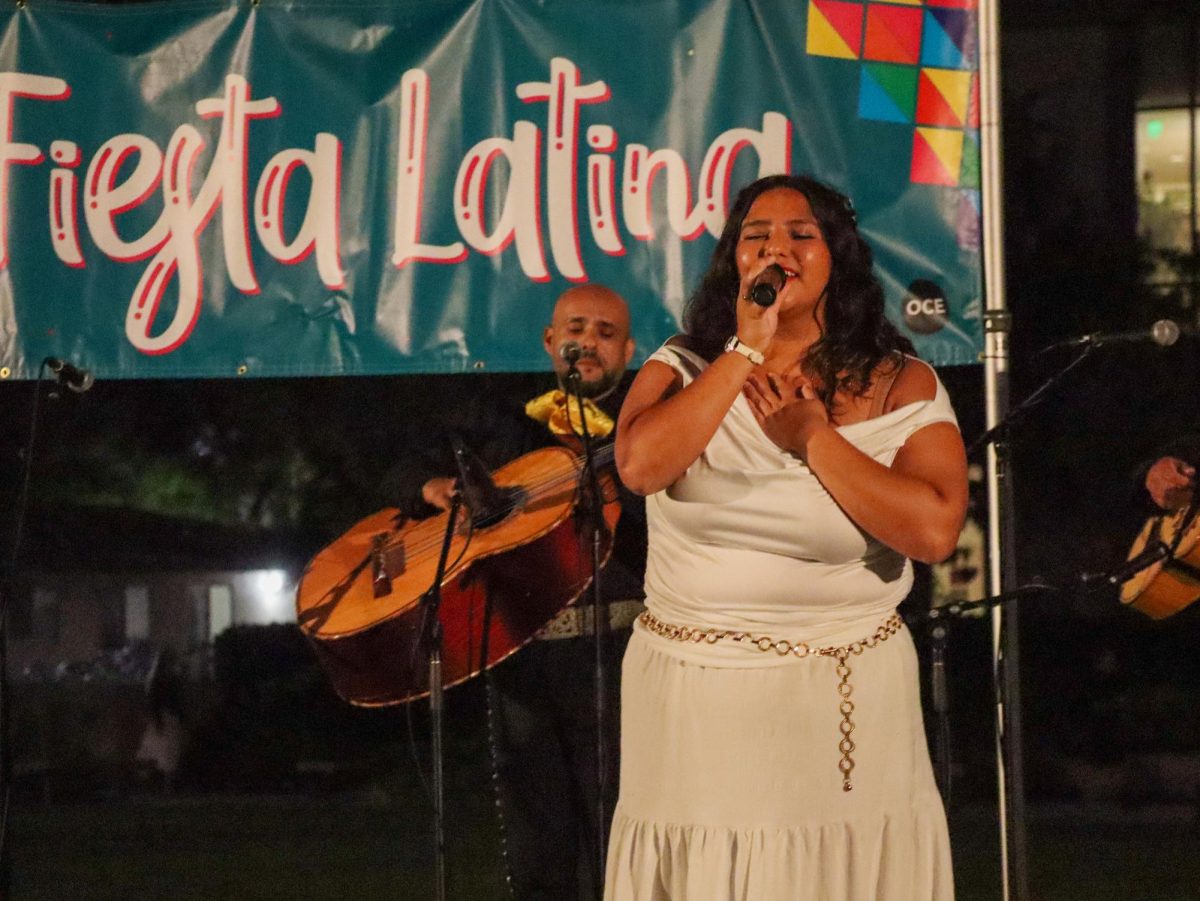
Amber Payne, Admissions Coordinator for USC’s Social Justice graduate program. | Tyler Otte/THE CHIMES
Correction: Gary Lindblad’s name was misspelled in the original article. The Chimes regrets this error.
Graduate schools gathered Tuesday along Sutherland Way, bearing free sweets, pamphlets and smiles to entice passers-by to pause and learn about their programs. Biola undergraduate students interested in graduate school may once have all been looking for seminaries where they could get a master of divinity — but no longer.
Changing graduate fields
In the past, “a lot of our graduates went into the pastorate, they went into education … they went in the mission field, but then it started to really shift and change in the ‘80s and ‘90s and now we get graduates that are in all different fields and a lot of those fields require additional study,” said Rick Bee, senior director of the Alumni and Friends department.
About 60 percent of last year’s graduating class had plans to start grad school in the next five years, Tiffany Lee, a career counselor in Career Development, said in an email.
This year the Grad Fair hosted everything from state schools boasting about their MBA programs, including California State University and University of California Irvine, to trade schools like the Fashion Institute of Design and Merchandising.
Career Development concentrated on state schools, affordable schools, non-seminary schools and those that would catch the interest of more than just seniors, according to Lee.
Planning ahead
Many schools, including UCI, enjoy talking to younger students as it gives them a chance to think ahead.
“We’re entering a conversation about their goals … so they can see if there’s a fit,” said Gary Lindblad, assistant dean and director of the MBA program at the Paul Merage school of business at UCI — and an ‘83 Talbot graduate.
Representatives love talking to inquisitive students of any age, ready to ask questions.
It is best “to ask what programs we offer … what are the requirements … if you don’t ask those questions in the beginning you can miss something important,” said Sarah Tedesco, a recruitment ambassador for the California State University Fullerton School of Business. “A lot of students don’t realize you can apply to the programs with any major.”
Deciding factors
Both the representatives and the students had specific things in mind for the day. For students, both programs and affordability were factors in which schools caught their eye.
What programs are offered, how long they are and how the schools accommodate working students were all important considerations for freshman nursing major Kailey Stripling.
Junior biblical studies major Peter Bell needed certain information from the seminaries he talked to, including “the tradition they come from, how they teach it, if they believe in certain doctrines or other doctrines, what theologians they look up to if they do, or if they are more interdenominational [and] how they teach their programs.”
Some students in scientific majors do not feel they have to go to graduate school to be successful in their fields, but that it is still a good option to investigate.
“I feel like a lot of nurses don’t go to grad school, but I feel like it would open a lot more opportunities for me,” Stripling said.
More than just science students feel they could opt out of graduate school. Freshman music major Logan Williams, who plans to become a pastor, isn’t looking into grad schools out of obligation to academics.
“I don’t feel like I have to go to grad school, but I feel like God has called me there, so, I guess I kind of have to go,” he said.
For those who want to know more or missed the Grad Fair, Mark Matthes, associate director of Career Development, advises students to check out the Career Development website and make an appointment to meet with a career counselor.
The Grad Fair will continue to grow as the face of graduate schools change.
Career Development is “trying to get the non-seminary side bolstered even more, and also the professional schools and certificate programs … it’s new for them to even consider coming to Biola … that’s probably going to be our focus for the coming years,” Matthes said.







